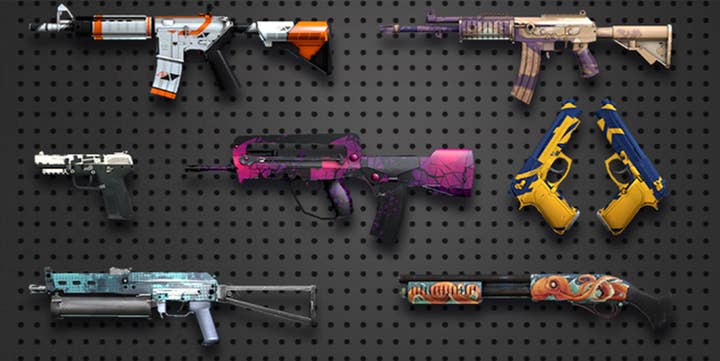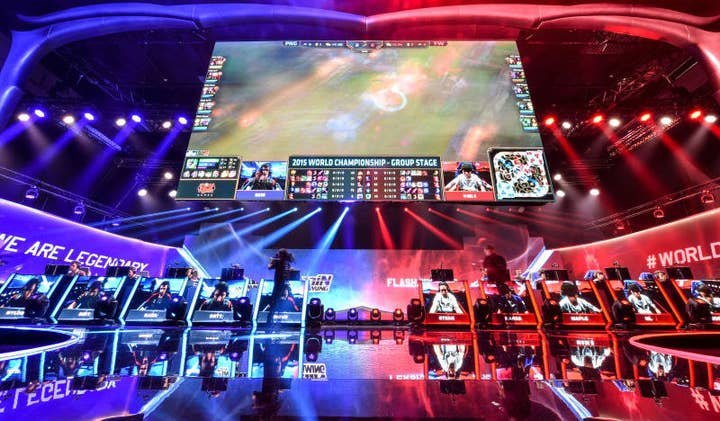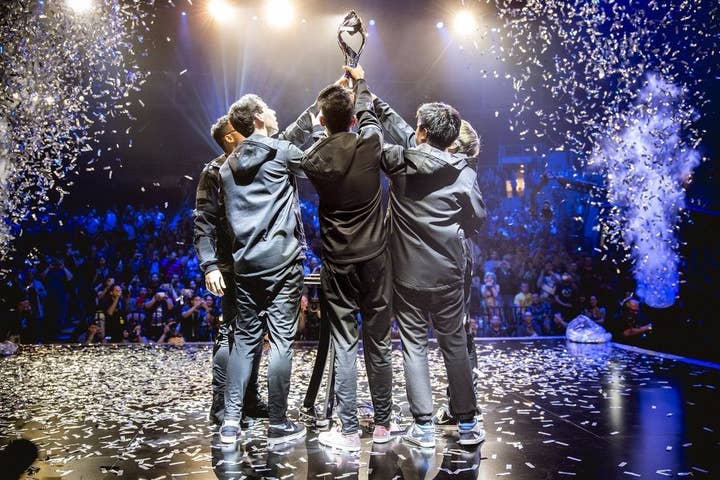eSports' "Wild West" period is drawing to a close
A Casual Connect panel described the forces that will civilise the eSports landscape, leading to a rise in both revenue and regulations
The "Wild West" days of eSports are drawing to a close, according to a panel of experts at Casual Connect USA, with the emerging industry braced for the civilising influence of major investment.
Among the panelists was Hi-Rez Studios' co-founder and COO Todd Harris, who suggested that a period of relative disorder and tumult is almost built into the eSports concept. "eSports is not a push from the publisher. It's a pull from the community," he said. "There haven't been any exceptions to that I can think of. Anyone that comes too hard out of the gate declaring their game an eSport, that's kinda the kiss of death. It's really a matter of how much and how soon other entities help to harness that community appetite."
"Skin gambling, I think, just illustrates how it's very difficult to apply standards and regulation in the [eSports] industry"
The consequence of this bottom-up evolution is that the early industry is atomised, with individual eSports operated and governed in distinct ways - largely based on the culture and practices of their creators and publishers. These different models, Harris said, are "just one example" of how the fledgling eSports business resembles the Wild West. "You have from complete control by a publisher, where they're judge and jury, to completely wild and open API, and a lot of publishers fall in between."
As the panel discussed the way eSports has evolved, Riot Games was repeatedly mentioned as a paragon of the "closed" strategy, where the rules are set and enforced, and the tournaments designed and operated, by the game's publisher. Conversely, Valve was offered as the prime example of an "open" strategy, where third-parties have more freedom to work with a publisher's IP to build their eSports presence.
The panelists agreed that both strategies have pros and cons, and Jonathan Pan, an entrepreneur in residence at Brave Ventures, pointed out that the last few weeks have illustrated a troubling weakness with the open, permissive approach. A scandal involving popular YouTubers and gambling sites for Counter-Strike: GO skins hit the news at the start of this month, a window into an unregulated world that, Pan estimated, could be worth "hundreds of millions" of dollars a year - maybe more.

"When you take a look at the top 300 inventories for CS: GO it's something in the range of tens of millions," Pan said. "Based on that, something like a billion [dollars] might be relevant, in terms of trading volume."
Exactly how much the issue is specific to eSports is perhaps debatable, but it's worth noting that the subject arose naturally from a discussion about eSports, and went on to dominate the remainder of the session. At the very least, the eSports business is taking it seriously; as evidence of the way a community driven phenomenon can become massively popular long before proper regulation has been considered - a scandal involving doping is another recent manifestation of the same problem.
"The topic of skin gambling, and gambling in general, is a hot one that we could debate," Harris said. "But right now, in its unregulated form, it's pretty nasty."
"Despite how big [eSports] seems, it's also tiny in terms of revenue - very small"
"The skin gambling, I think, just illustrates how it's very difficult to apply standards and regulation in the [eSports] industry. I think everyone involved with the industry feels like, for it to mature, there needs to be a bit more regulation, or at least consistency or expectation setting. But it's not clear right now where that answer is going to come from, because the entities involved all have different motivations."
The session was flecked with comparisons to traditional sports, and in reference to ownership most of all. Nobody owns the sport of hockey, or baseball, or football, but Call of Duty, Overwatch and League of Legends are all owned by distinct corporate entities. However, American sports are a particularly imperfect comparison in this case, due to the relatively narrow range of their global popularity. Soccer, which is as popular in Europe as it is in Asia, Africa and Latin America, is a more instructive example, with the leagues and clubs in each region represented and (to an extent) governed by entities like UEFA, CONCACAF and CONMEBOL. They exist precisely because there are competing interests within each region.
This may be the next step for eSports, but it is unlikely to happen until there is more money to be made in the sector. According to Ari Evans, founder and CEO of the eSports broadcasting firm Maestro, the amount of interest from investors and the size of the audience is something of an illusion. "Despite how big [eSports] seems, it's also tiny in terms of revenue - very small," he said. "A lot of companies and startups in this space are kinda having trouble figuring out how to monetise it. Most eSports leagues run at a loss.

"They're not a profit centre. They're a loss leader as a marketing tactic, to push the other main revenue streams of these titles - primarily in-game transactions."
The disparity between the number of people chasing opportunity in the sector and the amount of available revenue is one of the contributing factors behind the more nefarious practices, Pan added. "I think a lot of eSports teams own skin gambling sites and therefore funnel that money to pay their players, increasing average salary across the industry. Unless you can match that with your own revenue, or maybe VC money, then your team is done.
"eSports teams own skin gambling sites and therefore funnel that money to pay their players, increasing average salary across the industry"
"That source of revenue is going to be cut off, and therefore we'll see team salaries go lower... Maybe players will create a union, and organise around that."
This move towards legitimate revenue streams will be one aspect of the civilising of the eSports Wild West, and that process has already begun in earnest. Twitch, the longstanding "big kahuna" in eSports broadcasting, now has more estimable competition from services like Facebook Live and YouTube Gaming, while both Activision and Electronic Arts have made bold strides into the space in the last 12 months.
"My prediction for this year is that [lack of revenue] isn't gonna last for too much longer," Evans said. "There's going to be a business here. A lot of attention will be focused on monetisation now, and how we get this huge viewership base to monetise better."
"We've already seen professional athletes and owners of traditional sports teams get involved with eSports," Todd Harris added. "So, Rick Fox, Shaquille O Neal, Mark Cuban have all invested. Those investments, I can't put a number on it, but it's gonna go hard; more than double over the next year, of owners and high-wealth individuals who have invested in traditional sports investing in eSports."
GamesIndustry.biz is a media partner for Casual Connect USA. Our travel and accommodation costs were provided by the organiser.

